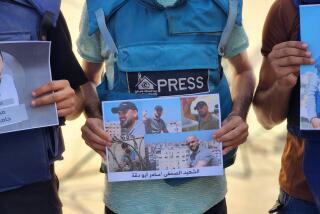Essay: Israel-Hamas war: Shocking — not surprising — in a land of grief, hate and broken promises
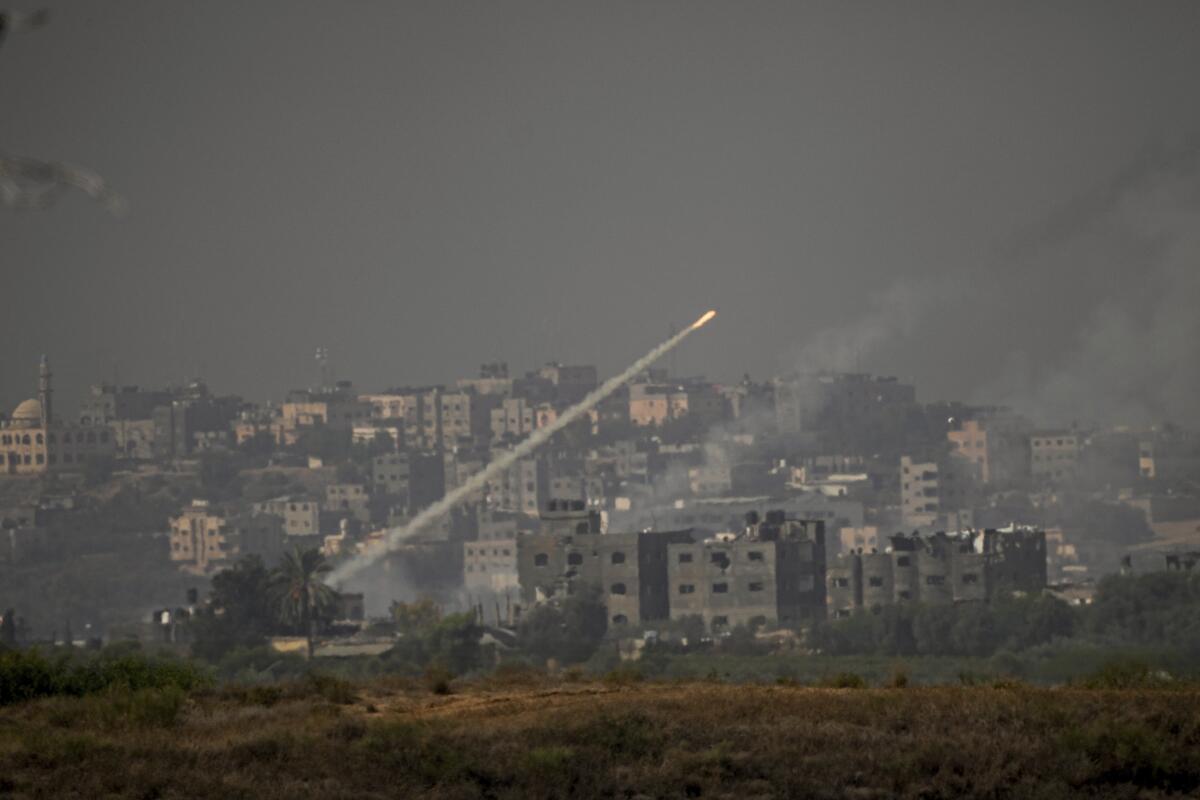
A Palestinian laborer awoke at 4 a.m. He stepped past his wife and sleeping children and joined thousands of other men hurrying on foot through the streets of Gaza to an Israeli border checkpoint. They moved like a desperate parade — carrying lunch bags and borrowed tools — into the glare of searchlights, guard dogs and barricades.
Adnan Masri was herded through a barbed wire maze on that morning in 1997. An Israeli soldier called him over and patted him down. Masri cleared the checkpoint and hopped a ride north to construction sites near Tel Aviv where another indignity awaited: Palestinians had been replaced on many jobs by immigrants from other countries. The laborer cursed and pleaded. But with tears in his eyes, Masri, trailing other angry men who shared his fate, surrendered himself again to the checkpoint, returning home humiliated and unable to feed his children.
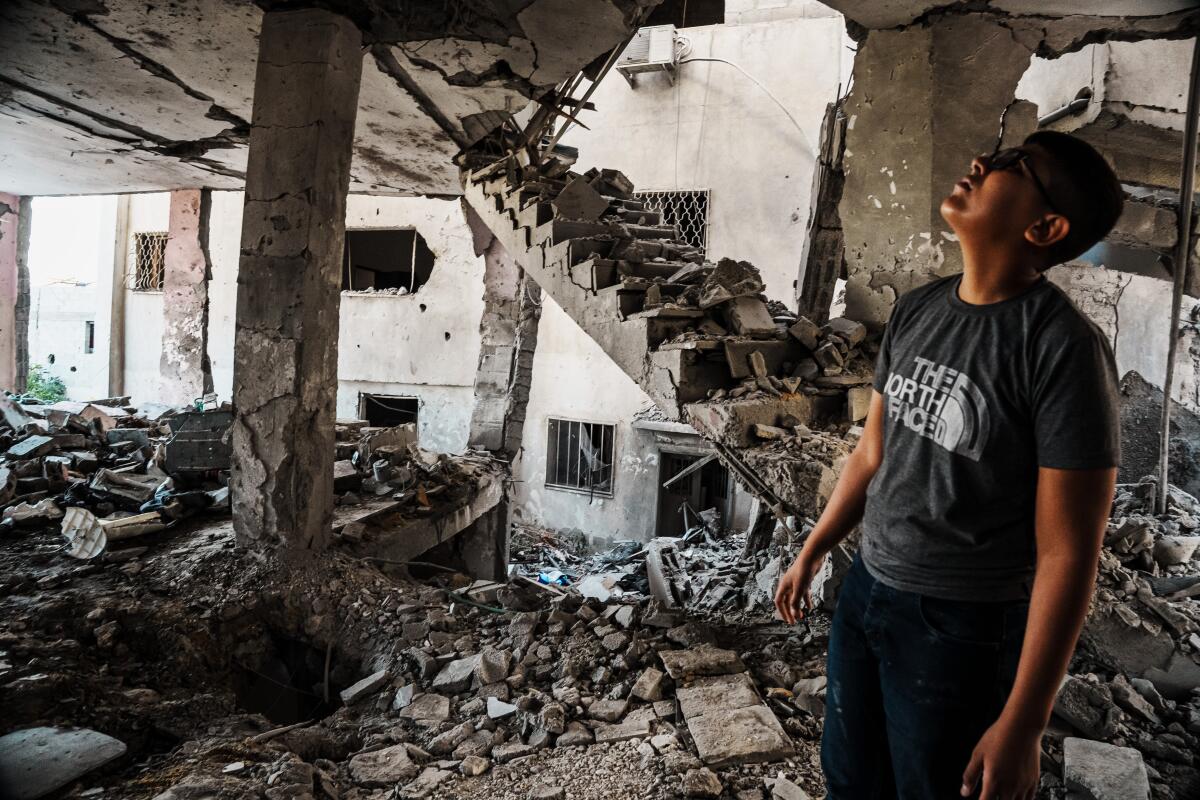
A few months later, two suicide bombers blew themselves up at a Jerusalem market, killing 16 people and wounding more than 175. It was another attack carried out by the Palestinian militants of Hamas. The images were indelible: walking wounded, canvas stretchers, blood pooling around an 8-year-old boy. A whirl of smoke. One Jewish man shouted: “Peace is dead. We want a war with all the Arab nations.”
A team of volunteers arrived with the tiny instruments of their trade and collected body parts for burial in accordance with Jewish custom. Blood was hosed from the market floor. Vegetable and fruit stands reopened. The fish was back on ice. Shoppers returned with shekels and defiance.
Those two scenes were my early glimpses of covering Israel and the Palestinian territories as a foreign correspondent.
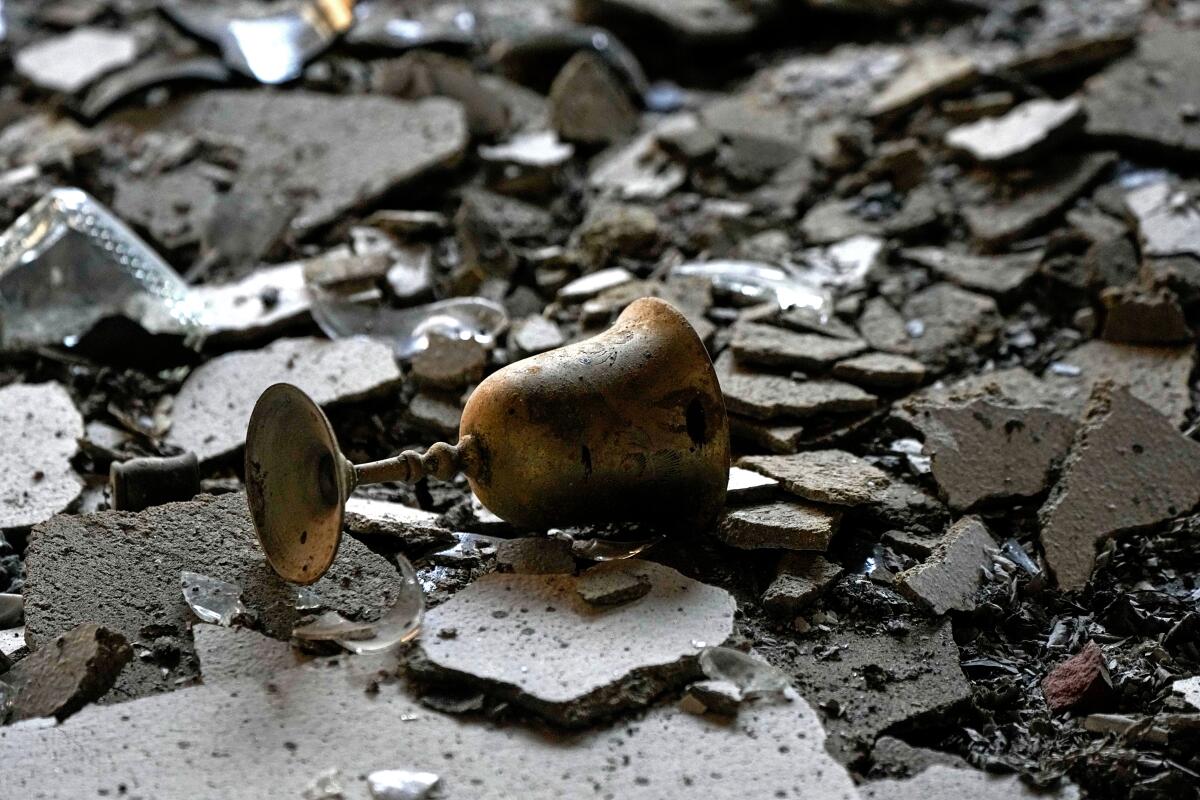
The country is a book of startling images, where sympathies, anger, faith and vengeance veer and collide at disorienting speed. It is a desert of grief and hate and unreconciled promises that tug mind and spirit in countless directions. Aggressor. Victim. Terrorist. Settler. In the predawn chill, the laborer curses his degradation; in the twilight, the bodies of Israelis are given to the earth. Ancestors and histories are summoned but nothing has brought resolution to a conflict that again threatens to ignite the Middle East.
It had seemed for a time more than two decades ago that the peace process had a slim chance despite violations on both sides. Israeli and Palestinian officials huddled with European and U.S. envoys in the backrooms and courtyard at the American Colony Hotel. The sense of possibility was not so tattered, but since then the world has grown inured to the land’s broken vows, withering violence and failed peace.
There are few illusions now. The fresh graves, obliterated buildings, wailing mothers, bereft fathers, kidnapped hostages, furious rabbis and imams, and faces darkened by ash and anguish are redefining a struggle in a moment that appears scarier and more forbidding than the ones that came before.
The central characters and their trajectories are the same as they were in 1997. Hamas seized control of Gaza in 2007, and many Palestinians came to regard it as a more resolute defender than the Palestinian Authority, which was criticized for giving Israel too many concessions for little return. Israeli Prime Minister Benjamin Netanyahu has been in and out of office for decades. His expansion of Jewish settlements — condemned by many nations as a violation of international law — has increased enmity and given anyone living in Gaza or the West Bank little hope for a two-state solution.
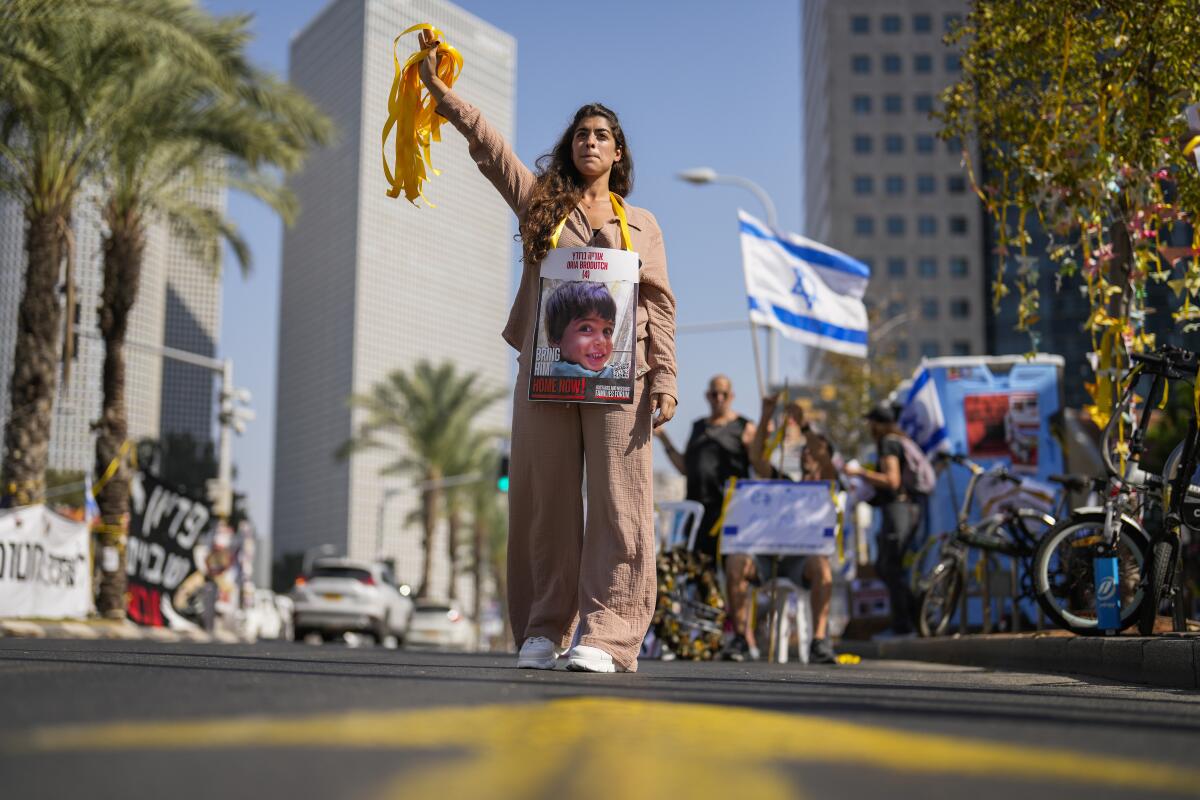
The savagery of the Hamas attacks on Israel on Oct. 7, killing more than 1,400 people, including children and grandparents, was the deadliest day for Jews since the Holocaust, according to Israeli officials. The slaughter included the gunning down of an estimated 260 people at a music festival. Israel’s relentless and brutal bombardment of Gaza and the threat that 300,000 Israeli troops are ready to invade the coastal strip of 2 million people have caused worldwide alarm.
The Gaza Health Ministry run by Hamas says 6,500 people, many of them children, have been killed as families carry corpses through shattered streets. Israel has cut off electricity and water and displaced about 1million Palestinian residents in a humanitarian crisis that threatens to kill thousands more civilians on blockaded land that rights organizations have called an open-air prison.
The unfolding horror was put in perspective this week: “The grievances of the Palestinian people cannot justify the appalling attacks by Hamas,” United Nations Secretary-General António Guterres told the U.N. Security Council. “And those appalling attacks cannot justify the collective punishment of the Palestinian people.”
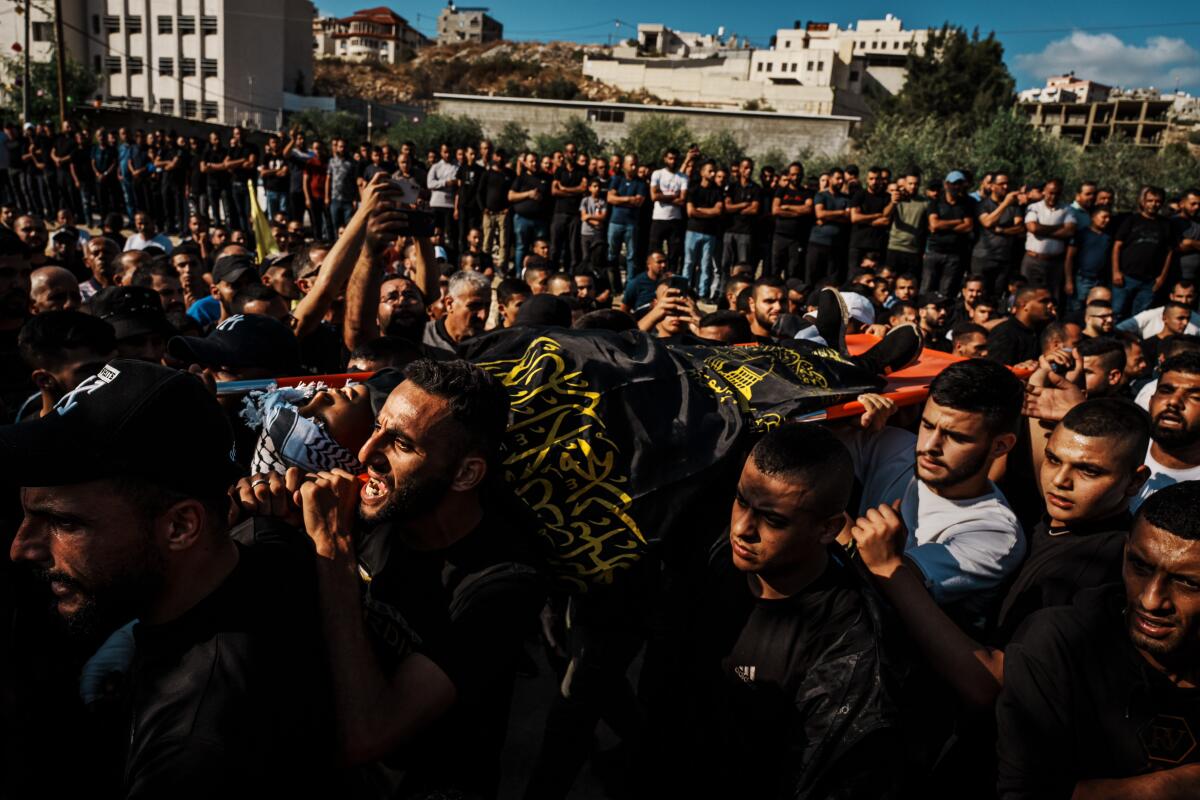
But that has become the narrative. The war is shocking but not surprising even as the circumstances and venom that led to it played out while much of the world was attuned to other dangers: global terrorism, wars in Iraq and Afghanistan, the Arab Spring, Russia’s invasion of Ukraine, and rising animosities between Iran and Gulf Arab states that led to Bahrain and the Emirates opening diplomatic relations with Israel. Many Palestinians felt ignored and abandoned — especially when normalization talks began between Israel and Saudi Arabia — amid a shifting global order.
The fighting between Hamas and Israel threatens to draw in other states, including Syria and Lebanon, where the Iranian-backed Hezbollah is much better armed than Hamas. Exchanges of rockets and artillery fire in the north between Israeli troops and Hezbollah militants could flare into war as it did in 2006. That would leave Israel fighting in its north and south.
The hostilities threaten to upset neighboring Egypt and Jordan at a time tens of thousands of Arabs are putting pressure on their governments by marching in the streets on behalf of Palestinians. The fighting raises the possibility of drawing in proxy powers like the U.S. and Iran that could — like America’s invasions of Iraq and Afghanistan after 9/11 — upend the region for years. President Biden sensed this on his visit to Israel last week when he mourned with Jews, but also warned: “While you feel that rage, don’t be consumed by it.”
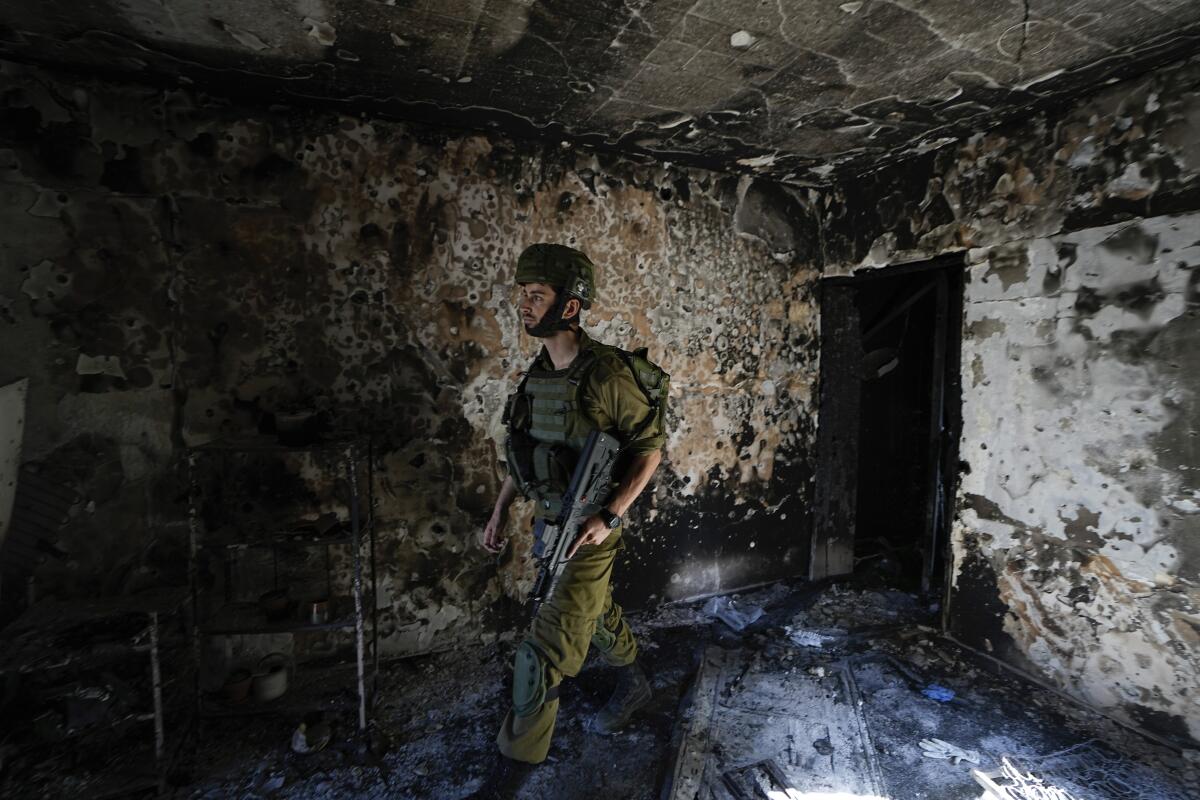
But this is a land of consuming impulses fueled by long-held grievances. As in the past, diplomats are scurrying, human rights groups are cataloging atrocities on both sides, and suffering is spreading. Israel has been shaken by a breakdown in its once vaunted security, unifying liberals and hard-right religious conservatives in calling for vicious reprisals against Hamas. Israel’s internal politics, including leftists who support a Palestinian state to end years of bloodshed, are playing out against an Arab world whose young population is looking to rally for a cause of dignity after the betrayals and failed uprisings of the Arab Spring in 2011.
Israelis and Palestinians are again center stage and the question has been the same since Israel’s war for independence in 1948. Israel demands security in a region where Hamas, Hezbollah, Iran and other forces want it erased from the map. The Palestinians demand freedom from oppression and poverty that will lead to their own country. Many Palestinians do not support Hamas. But they criticize Washington’s unqualified support of Israel and the fact that years of failed negotiations and Israeli intransigence have not delivered them a homeland.
But without negotiation and compromise, Netanyahu’s government of religious conservatives and ultra-nationalists and Hamas’ terror attacks and fanaticism will blunt any hope of resolution. Netanyahu’s game plan of dividing the Palestinians — diminishing the stature of the Palestinian Authority in the West Bank and allowing Hamas to govern Gaza with the help of Qatari money — has been undone. Israel’s massive intelligence failure to foresee Hamas’ onslaught on Oct. 7 has spiraled into an unpredictable war.
“An [Israeli] ground invasion, or worse, a return to direct occupation of Gaza, will result in untold suffering that will further catalyze anti-Israeli sentiment in Palestine and beyond,” according to Sharan Grewal, an analyst with the Center for Middle East Policy at Brookings Institution. “Even if Hamas is somehow destroyed, this sentiment guarantees that another group will take its place.”
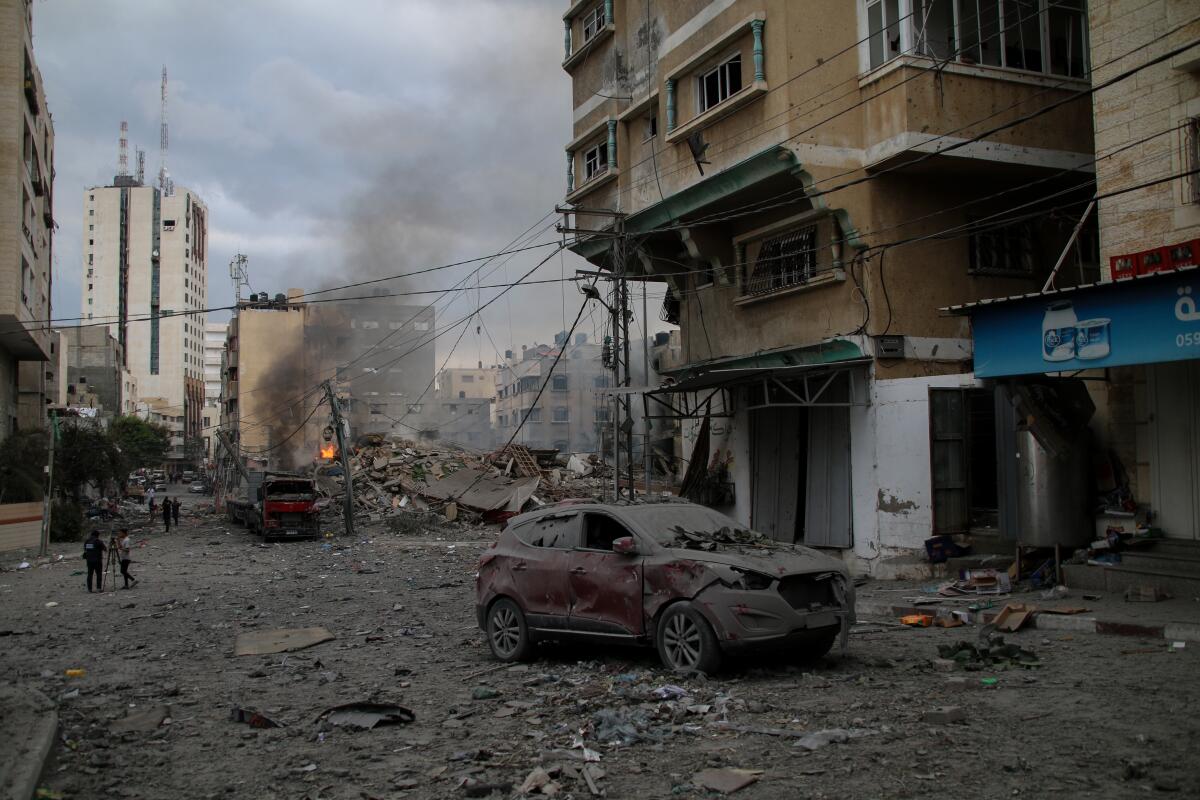
Maoz Inon, whose parents were reportedly killed in the Hamas attack, recently told the BBC: “We must stop the war. War is not the answer,” he said. “In our family we are not seeking revenge. Revenge will just lead to more suffering and to more casualties.” He added: “I’m afraid for the soldiers, and for the civilians on both sides in Gaza and in Israel that will pay [with] their lives.”
But the country and the territories are seething and for many it seems an endless, cruel loop.
On that morning in 1997, the Palestinian laborer wandered home jobless. He spoke of the intifadas and violence that led to Israeli border closings that at times trapped him and other workers in Gaza as immigrants were given their jobs: “Before the uprisings and the border closures, I was considered a human being,” he said. “I think both sides respected one another then. But not today. Today there is only humiliation.”
Months later, the bombs exploded in the Jerusalem market. Fruit and vegetable stalls were blown apart; the clothes of the living and the dead were tattered by shrapnel. The fallen were carried away and a man tried to describe what happened: “I was inside the shop when the first explosion took place. The second one was just a second later. Anybody who was between two walls was saved; anybody who poked his head out was killed.”
More to Read
Sign up for Essential California
The most important California stories and recommendations in your inbox every morning.
You may occasionally receive promotional content from the Los Angeles Times.

